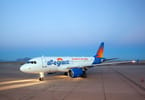“Many governments continue to require universal quarantine—either hotel-managed or self-managed. This impedes the freedom of movement, discourages international travel and destroys employment in the travel and tourism sector. Data from the UK tells us that we can and must do better. Almost 98% of those detained because of universal quarantine measures tested negative for the virus. We now have more than a year of global data that can help governments make more targeted decisions on international travel. This can keep the risk of importing COVID-19 cases low—including variants of concern—while restarting international travel with minimal infringement on the ability to live normal work and social lives. Importantly, lives that include travel,” said Walsh.
IATA teamed-up with Airbus and Boeing to demonstrate potential methodologies to manage the risks of COVID-19 to keep populations safe while restarting global connectivity. Aviation, including manufacturers, effectively manages and mitigates risk every day to keep air travel safe. Using these skills, Airbus and Boeing have developed data-driven risk-management models to understand the impact of various options.
Airbus Modeled Whole Journey Risk
Focusing on risks across the whole journey, Airbus considered more than 50 variables (such as number of confirmed cases and fatalities per country, COVID-19 testing strategies, traffic statistics, flight length, time spent in airport terminals, provision of on-board catering and air conditioning) in its model. Assumptions for the model are based on over a dozen data sources (including US CDC and the World Health Organization). And results of the model were cross referenced against data collections from actual results and observations from travel. Using current COVID-19 incidence data and not making any consideration for vaccinated travelers (which would only lower the risk of infections), example findings include:
- High to medium incidence – Latin America & Caribbean (292 cases/100,000 population) to Canada (95 cases/100,000 population): Assuming the same traffic as in 2019 and without any testing, we expect that the local incidence in Canada would increase by just over 1 case / 100,000 population due to the imported cases over 14 days. With a single PCR test before travel, this number falls to less than 1 case/100,000 population.
- Medium to medium incidence – Europe (111 cases/100,000 population) to US (81 cases/100,000 population): Assuming the same traffic as in pre-COVID-19 and without any testing, the Airbus model predicts that air travel over 14 days would add less than 1 imported case/100,000 population to the local incidence in the US.
- Medium to low incidence – Europe (111 cases of COVID-19/100,000 population) to Singapore (8 cases/100,000 population): Conservatively assuming the same traffic as in 2019 and without any testing, we predict that over 14 days air travel would add over 1 imported case/100,000 population to the local incidence in Singapore. With a PCR test before travel, this number falls to less than 1.
The Airbus model—designed to support government stakeholders to reopen air travel—demonstrates that the risk of virus transmission and translocation can be significantly reduced by adopting data-driven screening and protection measures.
WHAT TO TAKE AWAY FROM THIS ARTICLE:
- Assuming the same traffic as in pre-COVID-19 and without any testing, the Airbus model predicts that air travel over 14 days would add less than 1 imported case/100,000 population to the local incidence in the US.
- Assuming the same traffic as in 2019 and without any testing, we expect that the local incidence in Canada would increase by just over 1 case / 100,000 population due to the imported cases over 14 days.
- Conservatively assuming the same traffic as in 2019 and without any testing, we predict that over 14 days air travel would add over 1 imported case/100,000 population to the local incidence in Singapore.





















